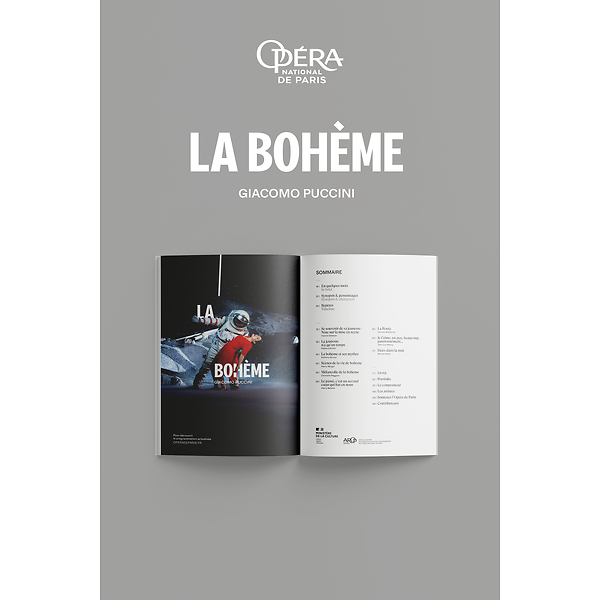LA BOHEME /PROGRAM / Bastille / SEPTEMBER /2025
Description
Before seeing their names at the top of the bill, how many artists have endured poverty? The writer Henri Murger knew precisely what he was talking about when he wrote his Scènes de la vie de bohème (Scenes of Bohemian Life), the chronicle of a group of young people painting canvases or penning verse in humble garrets whilst awaiting their moment of glory.
But youth, however poor, only lasts for so long: Giacomo Puccini was well aware of this, and adapted Murger's novel to propose his opera La Bohème, premiered in 1896, a poignant score, brimming with nostalgia. By embellishing the past, he gives all the more value - that of the ephemeral - to the love affair between the poet Rodolphe and the grisette Mimi.
This nostalgia lies at the heart of Claus Guth's staging, which sets the characters in outer space, all the better to reveal the distance that separates us from our memories.
Product information
- Publication Year
- 2025
- Technical specification
Duration : 2h30 with 1 interval
Language : Italian
Surtitle : French / English
Opening
First part
60 min
Intermission
30 min
Second part
60 min
End
Opera in four acts (1896)
After Henry Murger, Scènes de la vie de bohème

